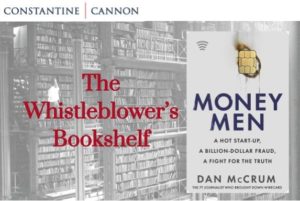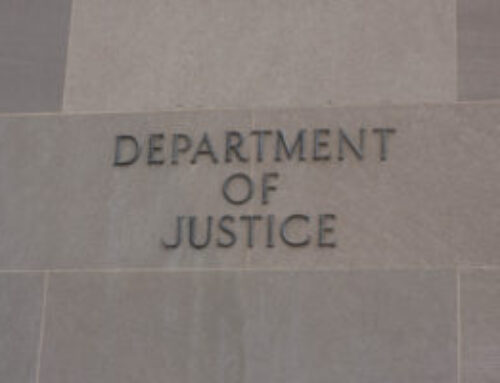When in 2014, Dan McCrum, a bank analyst turned investigative journalist, received a tip about “German gangsters” running a company that advertised itself as the German PayPal, he could not have imagined that his reporting would allow him to expose the biggest corporate scandal in post-war Germany. Although McCrum’s book, Money Men may read like a gripping crime drama, it is a meticulously-documented account of a mind-boggling investigation that brought down one of Germany’s most celebrated fintech companies. It is also a reminder of how markets and society at large stand to benefit from whistleblowers and short sellers.
Money Men charts the rise and fall of Wirecard – a German payment processing company that had raised billions of euros and was lauded as Germany’s fintech wonder to rival Silicon Valley’s big tech companies. The company had quickly become an investors’ darling, with a market capitalization greater than Deutsche Bank, listing the company on the Frankfurt Stock Exchange. McCrum’s nearly seven-year long investigation revealed, however, that the company was in fact a $30B fraud hiding in plain sight, with fake sales, profits and clients. As described by McCrum, from the beginning of the investigation, there were many red flags around Wirecard – the company was a strange hybrid of a technology company and a bank with questionable financial statements, opaque origins, a trail of unusual acquisitions and a series of accounting anomalies. McCrum’s exposure of the Wirecard fraud ultimately led to its downfall in 2020. Yet for a long time, the company was able to brush off allegations of audacious accounting fraud, shifting the blame instead onto Financial Times reporters, like McCrum, who were claimed to have facilitated market manipulation in collusion with short sellers.
Short sellers are often cast as villains, seeking as they do to make money when others are losing it as share prices drop. McCrum’s investigation started with a tip from a short seller. When Wirecard started to get attention in the financial markets, the rapid rise in its share price had caught the interest of a few short-sellers who were looking to place bets that its share price would fall. In 2014, one of those short-sellers, Leo Perry, alerted McCrum that Wirecard had been committing a very well-documented accounting fraud through a series of odd acquisitions in Asia. Perry long believed that the German company was concealing fake profits by overpaying for worthless businesses in Asia. As is now widely known, he was right. When he first voiced his concerns, however, Perry quickly became the target of a sophisticated campaign of intimidation aimed at discrediting him. One of the questions the Wirecard scandal leaves open is why market participants blindly rationalized what Perry long considered to be obvious evidence of wrongdoing. McCrum’s book Money Men therefore largely focuses on the role of short sellers who spent years trying to expose Wirecard’s lies and proved to be an invaluable source of information.
Other protagonists of the Wirecard story are the whistleblowers. As McCrum acknowledges, without the help of roughly a dozen whistleblowers, the Wirecard fraud would never have come to light. With the held damning internal company documents the whistleblowers provided, Wirecard’s questionable accounting practices were revealed. One of these courageous individuals is Pav Gill, a lawyer who worked inside Wirecard’s Asia headquarters and discovered that the company’s finance team faked contracts and forged invoices. After facing intimidation tactics and being forced to resign, Gill’s mother encouraged him to contact the FT and reveal the truth, which set in motion a chain of events that ultimately exposed Wirecard’s scandal to the world, prompted reform of Germany’s financial regulators, including BaFin, who failed to timely investigate allegations of fraud, and shattered the reputation of the Big Four accounting firm E&Y after a flawed audit of Wirecard enabled the fraud.
At the end of his book, McCrum notes that “the story in those pages is one of people.” Indeed, McCrum tells the story through the voices of those whose decision to speak the truth frequently comes at a cost to themselves. Unlike Pav Gill, some of the whistleblowers in McCrum’s story chose to use pseudonyms and remain anonymous for fear of their safety. Named or unnamed, the true heroes of Money Men are the whistleblowers and short sellers who brought the scandal to light.
Read More
What the SEC can learn from its German peer BaFin
The New BSA Whistleblower Provision – From the Whistleblowers’ Perspective
Market Manipulation & Trading Violations
Our other posts on Financial Institution Fraud
Read Book Review: “Money Men,” by Dan McCrum at constantinecannon.com






Leave A Comment